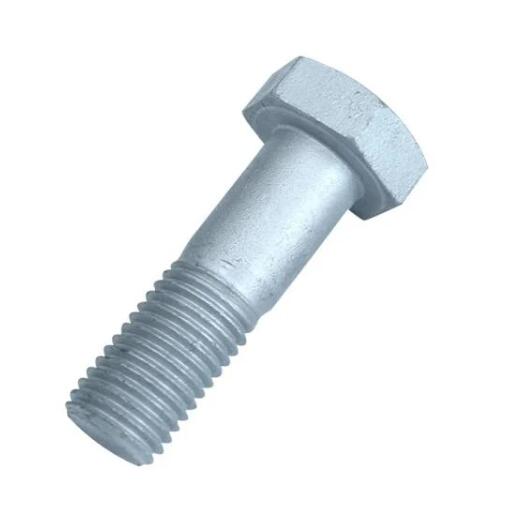Heavy Hex Bolts: The Backbone of Structural Integrity
2024-08-30
In the world of construction and manufacturing, fasteners play a crucial role in holding structures together. Among these, heavy hex bolts stand out for their strength and reliability. These bolts are widely used in applications where durability and load-bearing capacity are paramount. In this blog, we'll delve into what heavy hex bolts are, their unique features, and why they are essential in various industries.
What are Heavy Hex Bolts?
Heavy hex bolts are a type of fastener characterized by their larger hexagonal head and heavier body compared to standard hex bolts. The "heavy" designation refers not only to the size of the head but also to the thickness of the bolt, making it more robust and capable of handling greater loads. These bolts are typically used in heavy-duty applications, such as steel-to-steel connections in construction, bridge-building, and large machinery assembly.
Key Features of Heavy Hex Bolts
1. Larger Head Size: The head of a heavy hex bolt is wider and thicker than that of a standard hex bolt, providing a larger bearing surface. This larger head distributes the load over a greater area, reducing the risk of damage to the connected parts.
2. Increased Strength: Made from high-strength materials such as alloy steel or stainless steel, heavy hex bolts are designed to withstand significant stress and pressure. This makes them ideal for use in critical applications where failure is not an option.
3. Threading: Heavy hex bolts typically feature coarse threading, which provides a better grip and reduces the risk of loosening under vibration. The coarse threads also make the bolts easier to install and remove.
4. Corrosion Resistance: In many applications, especially those exposed to the elements, corrosion resistance is crucial. Heavy hex bolts are often coated with materials like zinc or hot-dip galvanization to protect them from rust and corrosion.
Applications of Heavy Hex Bolts
1. Construction: Heavy hex bolts are widely used in construction, particularly in steel structures like bridges, high-rise buildings, and industrial facilities. Their strength ensures that critical connections remain secure, even under heavy loads and harsh conditions.
2. Infrastructure: In infrastructure projects such as railways, highways, and pipelines, heavy hex bolts are essential for connecting structural components. Their ability to withstand dynamic loads and environmental stress makes them a preferred choice.
3. Machinery and Equipment: Heavy machinery and industrial equipment often require fasteners that can handle significant torque and stress. Heavy hex bolts are used to assemble and maintain these machines, ensuring they operate safely and efficiently.
4. Oil and Gas Industry: The oil and gas sector demands fasteners that can endure extreme conditions, including high temperatures, pressure, and exposure to corrosive substances. Heavy hex bolts, with their durability and corrosion resistance, are commonly used in this industry.
Why Choose Heavy Hex Bolts?
1. Reliability: Heavy hex bolts are engineered for applications where reliability is critical. Their robust design and high-strength materials ensure they can handle demanding conditions without failing.
2. Versatility: These bolts are available in various sizes, materials, and finishes, making them suitable for a wide range of applications. Whether you need them for a bridge or a piece of heavy machinery, there's a heavy hex bolt for the job.
3. Ease of Use: Despite their strength, heavy hex bolts are relatively easy to work with. Their coarse threading and larger head make them easier to install, especially in situations where quick assembly is required.
4. Long-Term Performance: Heavy hex bolts are designed for longevity. Their ability to resist wear, corrosion, and fatigue ensures that structures and machines remain secure over time, reducing the need for frequent maintenance or replacement.
Conclusion
Heavy hex bolts are more than just fasteners; they are a critical component in ensuring the structural integrity and safety of many projects. Their unique features, including increased strength, durability, and corrosion resistance, make them indispensable in construction, infrastructure, and industrial applications. Understanding the role of heavy hex bolts in these contexts can help engineers and builders make informed decisions, ultimately leading to safer and more reliable structures.



